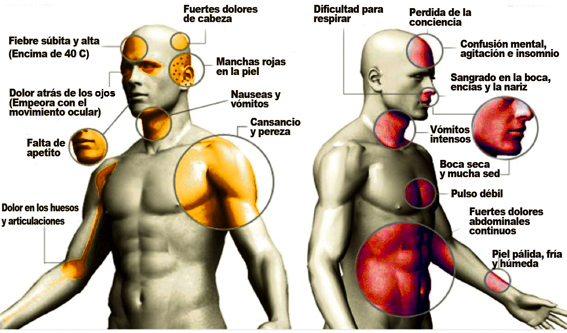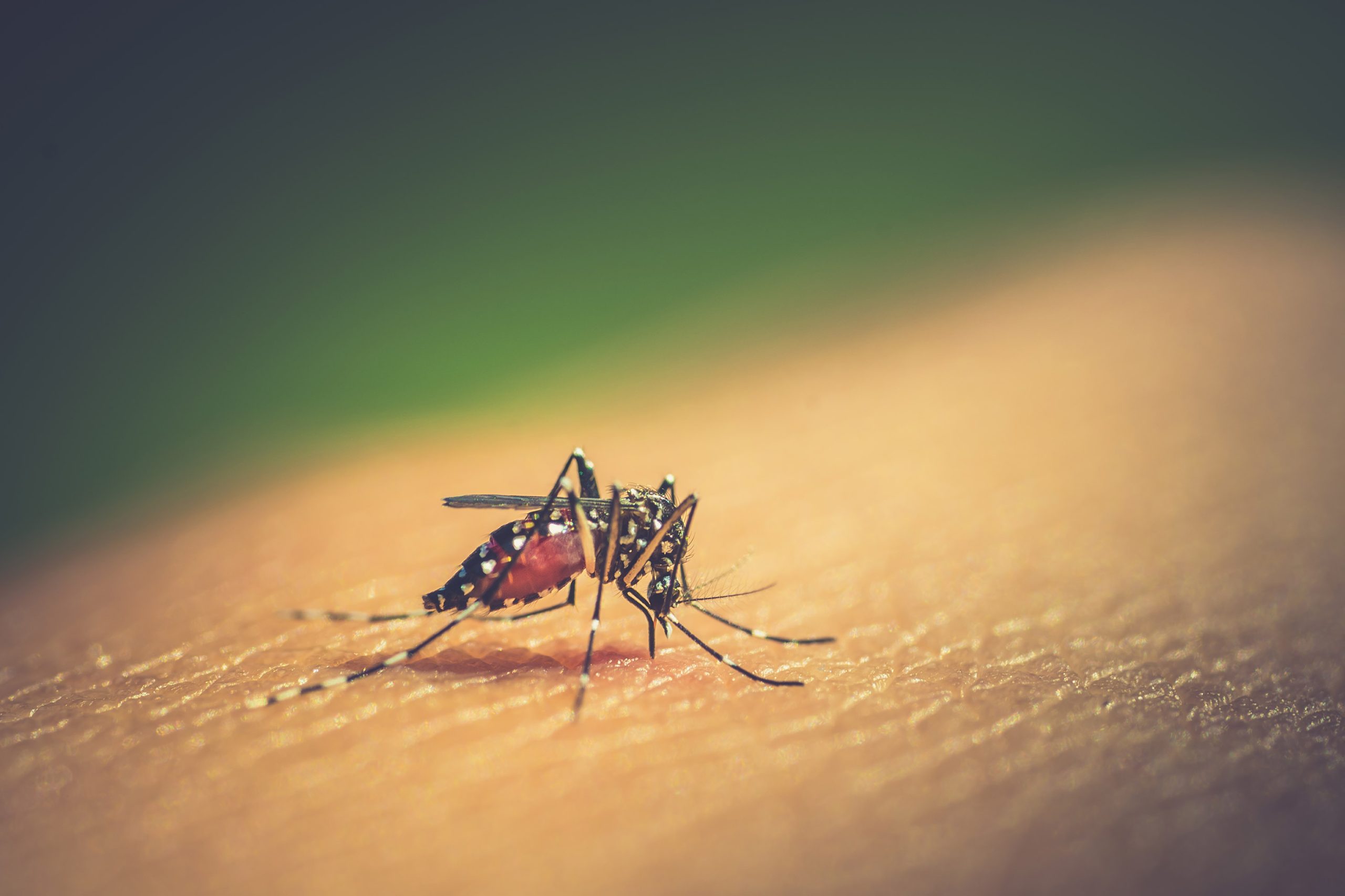Even in the midst of a pandemic, we cannot forget that there are other infectious diseases that can afflict us. In this rainy season, the circulation of seasonal viruses such as influenza or the presentation of cases of Dengue transmitted by mosquitoes is common. Aedes aegypti.
What is dengue?
It is a virus transmitted by the Aedes aegypti mosquito and to a lesser extent by the A. albopictus. These mosquitoes also transmit chikungunya fever, yellow fever, and Zika virus infection. The mosquito is a diurnal species, with greatest activity between mid-morning and shortly before dark.
The infection causes flu-like symptoms and sometimes progresses to a life-threatening condition called severe dengue.
Symptoms
A person should be suspected of having dengue when they have:
- high fever (40°C)
- very severe headache
- pain behind the eyeballs
- muscle and joint pain
- nausea
- vomiting
- enlarged lymph nodes or rash.
Symptoms occur within an incubation period of 4 to 10 days after the bite of an infected mosquito and usually last 2 to 7 days.
severe dengue It is a potentially fatal complication of the disease.
The signs that warn of this complication appear between 3 and 7 days after the first symptoms.
It is important to seek immediate medical attention with these signs:
- a drop in body temperature is observed (less than 38 °C)
- severe abdominal pain
- persistent vomiting
- continuous diarrhea
- accelerated breathing
- tachycardia
- bleeding from: gums, nose, vomiting with blood, heavy menstruation.
- fatigue (extreme weakness)
- drowsiness or restlessness
- coldness in hands and feet
- paleness, cold and profuse sweating.
Important Recommendations:
There is no vaccine for this virus at this time, so we must be informed about how to proceed when we have symptoms and the correct way to prevent complications.
- At the first symptoms, go to the doctor.
- Drink a lot of water. You can also drink rice water or natural juices.
- Keep rest.
- DO NOT drink drinks with caffeine or citrus, which are considered diuretic drinks and can contribute to dehydration.
- DO NOT self-medicate. Use only medications ordered by your doctor. Only resume your previous medications if your doctor allows it.
- Call your primary care doctor if you think your medications are not helping or if you have side effects.
- It is contraindicated to take medicines such as Aspirin, NSAIDs (naproxen, diclofenac, voltaren, cataflam, others) due to the risk of possible bleeding.
- Avoid using perfumes and dark clothing that can attract mosquitoes, or on the contrary, if you are outdoors, try to use repellent.
- Use mosquito net.
Eliminate mosquito breeding sites.
An essential part of preventing dengue is to avoid having mosquito breeding sites in your surroundings in order to reduce the chances of a bite.
- Keep the roof and patio of your home clean.
- Sort containers or objects that can accumulate water, turning them upside down or putting a lid on them.
- Remove and/or bury trash that may collect water. Avoid throwing it in patios, terraces and vacant lots.
- Remove water from tree holes, rocks, walls, wells and abandoned latrines. Filling gaps in walls and walls where rainwater can collect.
- Make sure to cover, empty and clean the containers where water is stored for domestic use every week.
- Identify possible breeding sites in the neighborhoods to inform municipal authorities.
Dengue is one of the diseases typical of our tropical region, which can cause the most damage to the population, and may require medical attention with a health system that is currently saturated. This is why prevention in health is so important.


